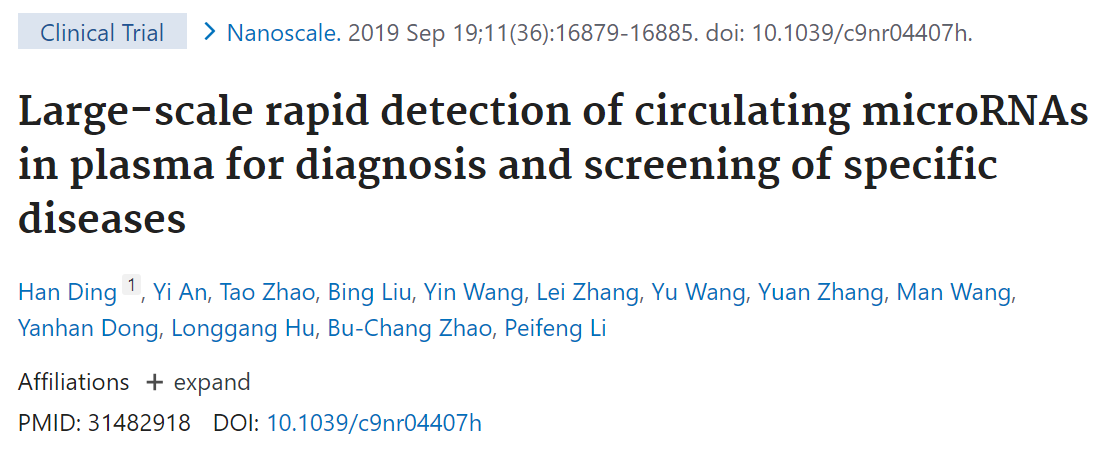Noncoding small RNAs, such as microRNAs, have become biomarkers for many diseases in clinical diagnosis. The dysregulation of these microRNAs may be related to many different diseases, such as cancer, dementia, and cardiovascular diseases. The key to the effective treatment of these diseases is early and accurate preliminary diagnosis, which can improve the patient’s chances of survival.

Our team in the Institute of Aging reported a nucleic acid aptamer-responsive MSN-adapter light sensor based on nano-silicon spheres, which can be used in the field detection method of microRNA in multiple samples at the same time. Related results were published in Nanoscale under the title “Large-scale rapid detection of circulating microRNAs in plasma for diagnosis and screening of specific diseases.”
Features of this study
1. Through this unique combination, the accurate quantification of microRNA--miR-134, a potential marker of cardiovascular disease, can be achieved without nucleic acid amplification. With the help of a full-featured microplate detector, when the readout time was three minutes and the total processing time was less than four hours, the detection limit of 10 fm was reached by using a measurement volume of less than 200 ml.
2. The results showed that miR-134 was detected in serum samples taken from patients with myocardial infarction, which confirmed the feasibility of this sensing platform.
3. The verification of the results obtained by the RT-PCR method showed that this MSN-adapter optical sensor system is a potential low-cost, easy-to-expand, and target-free nucleic acid diagnostic tool.